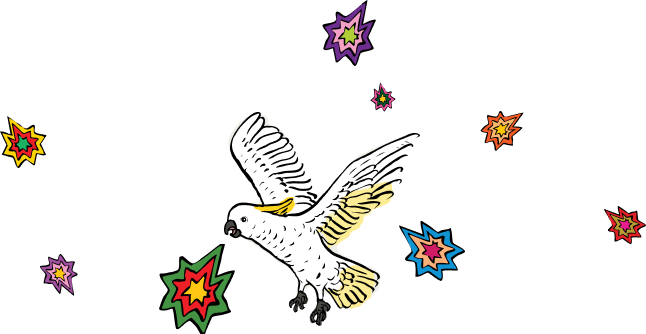Reviewed by: Mindshare
This review was written for mindshare, a creative community and online mental health publication. Reflections are by mindshare writers with lived experience of mental illness, specifically critiquing through a mental health lens. Content may contain triggering themes.
Sweet, cute, and nostalgic for the tech and teenage pastimes of the early 2000s, Parsnip of Power charms its audience right out of the gate. Joshua Kernich tells a fantastical, sophisticated, and deeply personal story that is, at its root, about weaving a compassionate relationship between addiction and the self.
The storytelling is epic and delightfully silly at the same time, integrating original songs played on a Casio keyboard, painstakingly rendered 64-bit graphics, the bromantic chemistry of Josha and Patrick (on keyboard) onstage, and good old-fashioned oral storytelling tradition craftsmanship. The potentially hard-to-stomach topic of porn addiction is introduced gently and whimsically. We meet a cast of strange and intriguing characters, including: a slightly depressed potato, a mysterious raven, and a seagull in big trouble. I had no idea how deep this show was taking me to my own dark places until right at the end.
The highest recommendation I can give is that Parsnip of Power made me aware of, and made me question, implicit biases against “the addicted” I didn’t know I had. As someone whose mental health struggles manifest as chasing the dopamine hit from extreme self-discipline, I haven’t understood or valued the struggles of people who chase the dopamine hit from the extreme self-abnegation of addiction. I’ve understood the pain and the systemic inequities contributing to it. I’ve understood the need to find a way, any way, to escape the crushing weight of interpersonal, societal, and systemic fracturing, loss, and rejection.
But it was only during the closing moments of this show that it dawned on me: my struggles and Johua's struggles are the same. People with addictions are coping in the same way I am - when there’s too much load on the system, we ALL need to exit. In this A-ha! moment, I was deeply, uncomfortably aware of my how much I’ve internalised the pejorative nineteenth century trope of addiction as personal failing. And as I sat with that discomfort, withstanding the temptation to be swept away on the fear-based judgements that sprung up, something miraculous happened. I felt less alone. I felt validated.
If someone told me that an hour-long story about a cis straight white man wanking off would have made me feel better about the world, I never would have believed them. But it did. Go see it for yourself, and see if it makes you feel better, too. Four stars.




